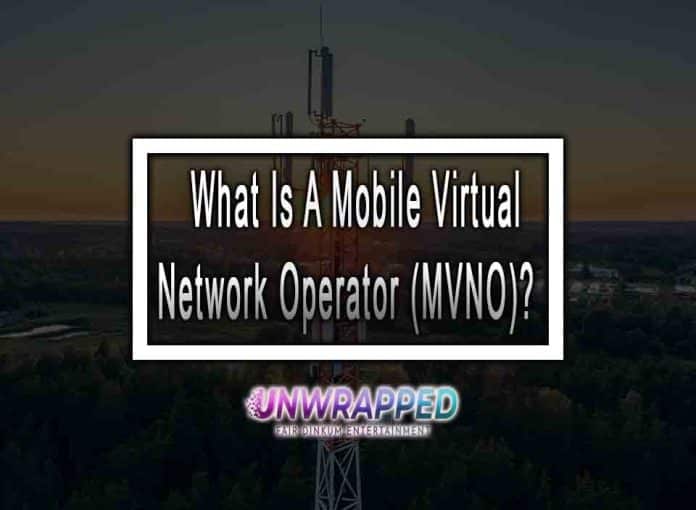Cell phones and other communication devices use wireless communication systems. The systems rely on signals transmitted over various frequencies, which are transmitted through different systems, including mobile networks.
Mobile network operators (MNOs) run the mobile networks that provide voice and data transmission services. Different network suppliers exist, including mobile virtual network operators (MVNOs). In this article, you will learn about MVNOs, so continue reading.

What Is An MVNO?
A virtual network operator is a wireless network service provider that doesn’t own any wireless network infrastructure. Unlike the MNO that owns and maintains transmission infrastructure like signal towers, the MVNO leases from MNOs.
An MVNO typically forms an agreement with an MNO to gain access to their network services at discounted rates. They often make comparisons like Telstra versus Optus before settling for a hosting company. Then, they set some retail rates and provide network services to their clients. In other words, MVNOs are retailers of mobile network services.
MVNOs use their business models, including branding, billing systems, customer service, marketing, and personnel. Typically, an MVNO will offer voice call plans, data bundles, and cell phones.
Types Of MVNOs
MVNOs have four main categories as follows:
- Branded Resellers. These resellers receive discounted wireless rates from MNOs and resell them using suggested retail tariffs under their brand name. Therefore, their main focus is sales and marketing.
- Light MVNOs. These are also known as enhanced service providers. They also delegate the network operational management to the MNO, but unlike branded resellers, they manage more applications, including billing. Moreover, they rely on MNOs for access to infrastructure and maintenance.
- Full MVNOs. Full MVNOs are also known as full infrastructure MVNOs. As the name suggests, they fully control their services, including network management and sales and marketing. In other words, they lease the infrastructure and then manage to rest.
- Network Enablers. Network enablers are also known as mobile virtual network enablers. You could say they serve as middlemen between small MVNOs and MNOs. Although they’re MVNOs, they offer value-added services to smaller MVNOs. Because of this role, they become enablers so MVNOs with limited resources can enter the market.
Characteristics Of An MVNO
The four different MVNOs have the following characteristics:
- A large existing consumer base, perhaps from other business ventures
- Loyal clients who will purchase their mobile network products and services
- Sufficient capital to invest in sales and marketing of mobile networks
Example Of An MVNO
An example of an MVNO with the characteristics discussed earlier is supermarket chains. They already have a customer base from their supermarkets who trust the brand and remain loyal to them for years. Therefore, they can afford to leverage their brand. To ice the cake, they also have enough capital to invest in the sales and marketing of mobile network services.
Functions Of An MVNO
As highlighted earlier, MVNOs don’t own network infrastructure. However, they provide all the other services required by their clients. These include:
- Marketing of mobile network products and services
- Billing of clients for mobile services like voice and data
- Registration of new network subscribers
- Provision of mobile network services such as balance inquiries, credit top-ups, and customer care
- Distribution of mobile devices like cell phones and SIM cards
Why MNOs need MVNOs
MNOs benefit from MVNOs in two ways: a more extensive market reach and additional revenue.
Like most other businesses, MNOs are always aiming for growth. One way to grow their business is by getting more customers. MVNOs offer this solution as they have existing customers with brand affinity. Thus, partnering with MVNOs helps MNOs to grow their market base.
MNOs often have unutilized bandwidth, which they use when they partner with MVNOs. This brings in more streams of revenue from their existing infrastructure and becomes a win-win partnership for both the MVNO and the MNO.
How Are MVNOs Competitive?
To stay competitive, MVNOs need to have the following:
- Security – They must have a secure and robust network. Hence, they should invest in platforms that keep their firmware and customer devices updated and safe from cyber-attacks.
- Real-Time Reporting – MVNOs must use platforms that identify and manage anomalies on time to avoid customer frustrations.
- Effective Marketing – They should streamline their existing businesses with mobile network service provisions so they can serve existing and new clients easily.
Summary
MVNOs have positively changed the landscape of the mobile network business in the world. They provide MNOs with access to more extensive customer bases and more revenue. As a result, they deliver good products and services for customers. However, the modern world still gives its regard to our local phone services which still keep the relationships between people and businesses intact through a stable connection of networks. Connection to people may have a broad variety of options already but it is still up to you to decide depending on your needs.











